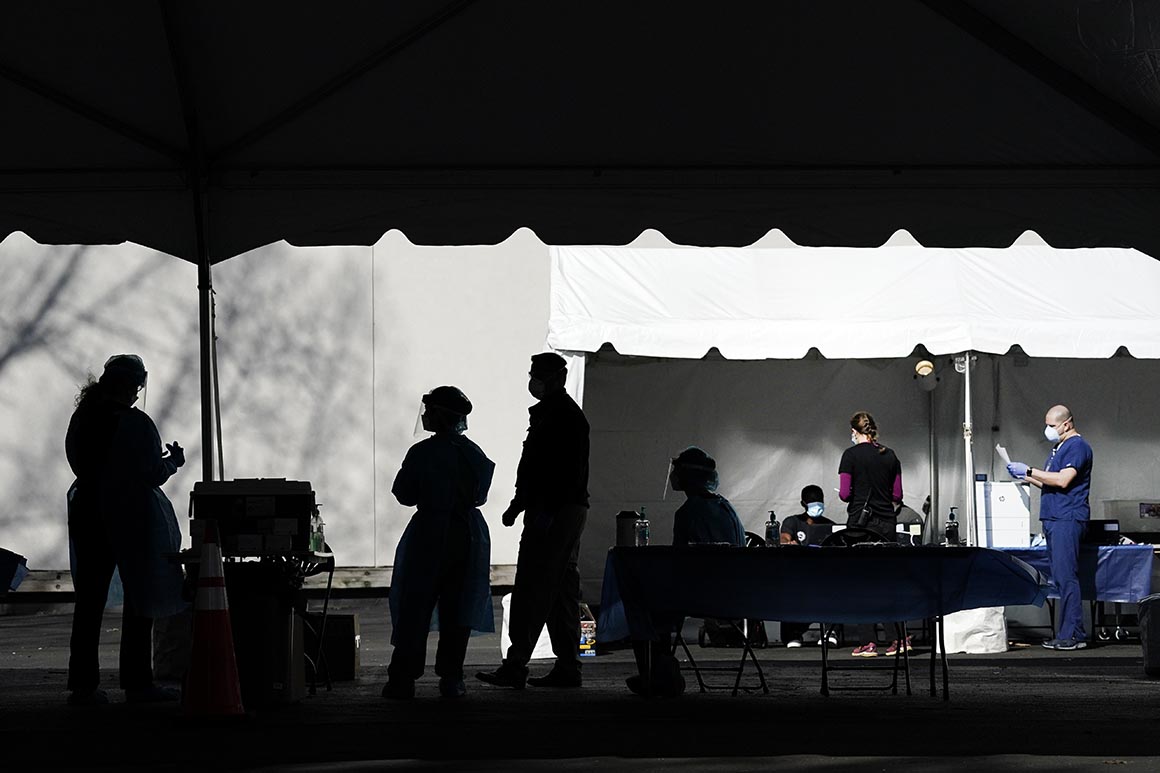
The CDC did not respond to questions about whether it has issued guidance to the states about gathering demographic data or if it plans to release racial and ethnic data on coronavirus.
Jeff Lancashire, a spokesperson for the CDC’s National Center for Health Statistics said the CDC will release demographic data on Covid-19 deaths, “but not for a while.”
Some of the gaps can be attributed to testing labs that are submitting reports with fields left blank or missing information. Effectively transmitting complete demographic data isn’t a new problem, said Janet Hamilton, head of the Council of State and Territorial Epidemiologists. But public health experts are “now in a situation where we need the information instantaneously,” Hamilton added.
“The public health reporting piece has been deprioritized and we’re now seeing the effects of public health reporting consistently deprioritized year after year,” Hamilton said. “We don’t have a first-century data superhighway because public health has been so underfunded for so many years.”
New York, which has been a national hot spot for the disease, has not released racial and ethnic data. A spokesperson for the state health department said such data “has not been part of our intake collection,” but it “is working to incorporate it going forward as part of our constantly evolving public health response.”
California isn’t releasing racial and ethnic data, saying the public health department is “continually assessing what information can and should be made public.” A Georgia health department spokesperson said race and ethnicity “is one of the questions on the form used by facilities to report testing results” but the state, which is 32 percent black, is not releasing the data.
And many states and organizations that are gathering racial data are still suffering from gaps in the reporting. An analysis of reports in one Indiana database found that 59 percent of tests came back without any race. “Every group is undertested based on the data we have,” said Brian Dixon, of the Regenstrief Institute, who attributed the under-reporting to a combination of manual data entry and pressure to return rapid results.
‘Maria, your district is in trouble’
Philadelphia City Councilwoman Maria Quiñones-Sánchez got a call on March 28 from Dr. Kathleen Reeves, a senior associate dean at Temple University’s Lewis Katz School of Medicine.
“She was like, ‘Maria, your district is in trouble,’” said Quiñones-Sánchez, who represents a largely Latino community. “She said they were getting an increase of Latinos testing positive for coronavirus and they were very concerned.”
Reeves said her concerns were based on “totally anecdotal” information. “Some of our practitioners thought they were seeing more Hispanic patients who were positive than other patients,“ she said.
But it’s impossible to know for certain how much trouble Quiñones-Sánchez’s district and other Philadelphia neighborhoods are in. The state of Pennsylvania is not collecting data on the race and ethnicity of people who contract coronavirus, though the city of Philadelphia has collected and released some limited figures showing about half of coronavirus cases in the city are African American.
The issue is especially important because decisions about setting up testing centers might be missing the most affected areas, Reeves said. Minority neighborhoods across the country have often been the last to see coronavirus testing sites set up, and Reeves noted that people without a car cannot access the drive-through sites in Philadelphia.
Source: politico.com
See more here: news365.stream






